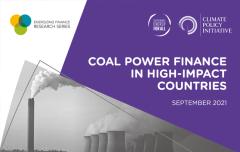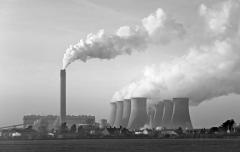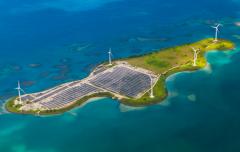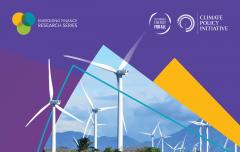The Persistent Problem of Coal Power Finance
Join Sustainable Energy for All (SEforALL) and Climate Policy Initiative for the virtual launch of a new knowledge brief on Coal Power Finance in High-Impact Countries, part of SEforALL’s Energizing Finance research series.
The recent downward trend of global investment in coal-fired power plants reflects the growing sentiment that new coal generation is misaligned with achieving a net-zero economy by 2050. But this broad trend does not necessarily hold in the context of South Asian and Sub-Saharan African high-impact countries, those with the largest energy access gaps.
Despite geopolitical, environmental, technological, public policy and economic challenges facing coal, pockets of funders continue to finance additional coal capacity in these countries.
This new research identifies which high-impact countries are receiving finance for coal-fired power, the sources of this investment, its key drivers and the risks attached. The research also offers a series of recommendations to accelerate coal phase-out in favour of more cost-effective renewable energy solutions that support both increased energy access and the transition.
Watch the recording here.
Agenda
10 a.m. ET / 4 p.m. CET
Opening remarks and introduction to the Coal Power Finance in High-Impact Countries knowledge brief
Olivia Coldrey, Head of Energy Finance and Clean Cooking, SEforALL
10:05 a.m. ET / 4:05 p.m. CET
Presentation of main research findings and recommendations
Kyle Blocher, Analyst, Climate Policy Initiative
10:20 a.m. ET / 4:20 p.m. CET
Panel discussion
Moderator: Olivia Coldrey, Head of Energy Finance and Clean Cooking, SEforALL
Panellists:
Vibhuti Garg, Energy Economist, Lead India, IEEFA
Rebekah G. Shirley, Director of Research, Data & Innovation, WRI, Africa
Patrick Tonui, Head of Policy and Regional Strategy, GOGLA
10:45 a.m. ET / 4:40 p.m. CET
Audience Q&A
10:55 a.m. ET / 4:55 p.m. CET
Closing remarks
Olivia Coldrey, Head of Energy Finance and Clean Cooking, SEforALL
SEforALL acknowledges with gratitude the financial assistance provided by the Charles Stewart Mott Foundation that made this event and report possible. We also acknowledge the Austrian Development Agency, the Ministry for Foreign Affairs of Iceland, and the IKEA Foundation for their core support to our work.



